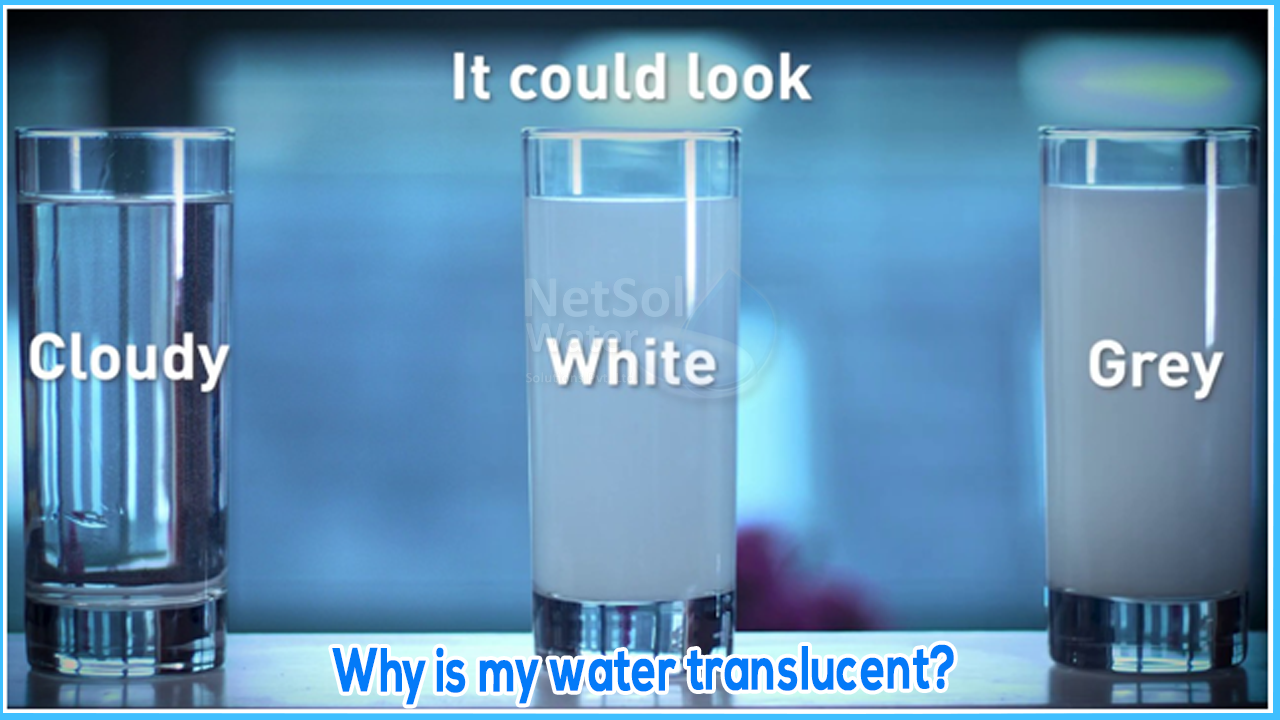Water can get carbonated and cloudy as a result of trapped air in your pipes, but this is completely harmless. Small particles such as rock, stone, sand, or soil could pollute your water pipes. In that scenario, you should get treatment advice from a licensed plumber.
The first thing you should do is set it aside and wait a few minutes for the bubbles to come to the surface and clear. The cause of cloudy tap water, also known as milky or white water, is most likely trapped air or a build-up of dissolved particles in the water pipes. It's vital to remember that murky tap water is entirely safe.
Here are a few reasons why your tap water is blurry or milky:
1. TRAPPED AIR IN THE NETWORK
Aerated water is the most prevalent cause of murky water. When there is a shift in pressure in the water supply network, such as when a pipe bursts or when local repair work is being done, air can become trapped in the water flowing through the pipes and be discharged via the taps.If the foggy water in your glass is caused by trapped air, it will clear naturally in a minute. As the small micro air bubbles ascend to the top, the cloudiness will clear from the bottom up. If the water from a hot water tap is hazy, your boiler may be malfunctioning, and you should call a plumber as soon as possible.
Seeing if your neighbors are having the same problem will help you figure out if it's a problem with your household pipes or the larger supply network. If the problem is limited to your home, you may need to contact a plumber or the city council to determine whether the problem is related to your home's plumbing.If you think aeration is to blame for your cloudy water, you can rest assured that it is entirely safe to drink. If you want to get rid of the trapped air, run the tap for a few seconds before filling your glass.
2. PARTICULATE IN THE WATER SUPPLY
Water passing through the network may take up sediment or particles such as sand, silt, or rock that does not fully dissolve, leaving your water hazy.If the foggy water is produced by particulate, unlike air bubbles, it will not clear quickly, and you may be able to see individual pieces of sediment if they are large enough.The majority of particle is safe, although it can make water appear unclean. If you use a private water supply, such as a borehole or well, and a UV filter to sterilize the water, particle can protect hazardous bacteria from UV filtration, leaving you more susceptible to water-borne illnesses.If the amount of particle in your water is an issue, you might want to consider installing a mechanical water filtering system. A water filter housing with a specialized drop-in sediment filter is a nice illustration of this.
3.HARD WATER
If you reside in a hard water area, limescale build-up in your pipes or appliances may create hazy water.Because limescale is generated when hard water is heated and agitated, it is most commonly observed after boiling water in a kettle, but it can also form inside taps and pipework connected to the boiler or water heaters.Although drinking cloudy water caused by hard water poses no health risks, the discoloration in water-based drinks can be unappealing, especially if chalky deposits form on taps and other equipment.There are a few various techniques to remove the minerals that produce hard water and hazy water, including water filters containing polyphosphate scale inhibitors, water softeners, and calcium treatment units.




